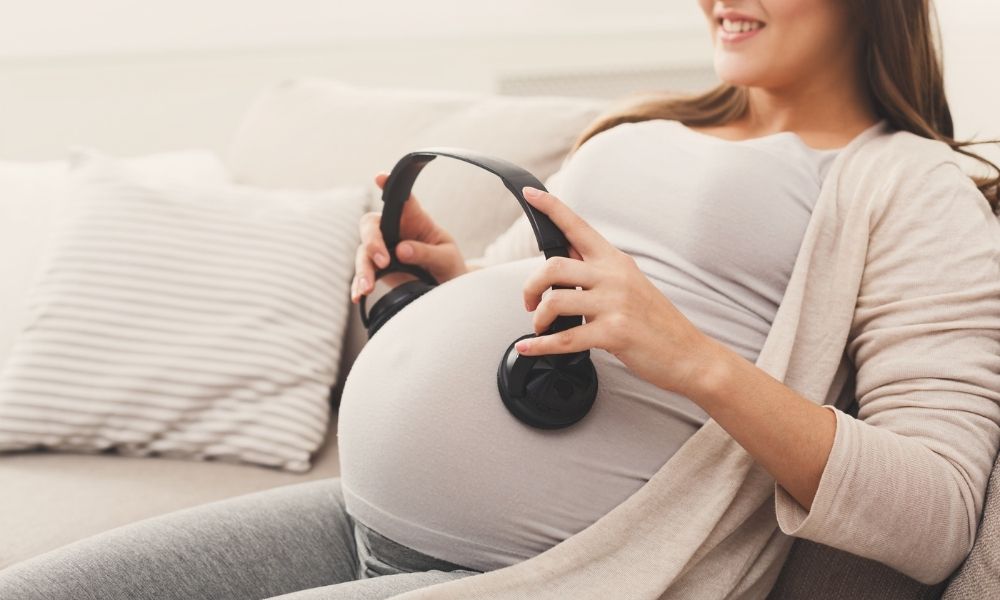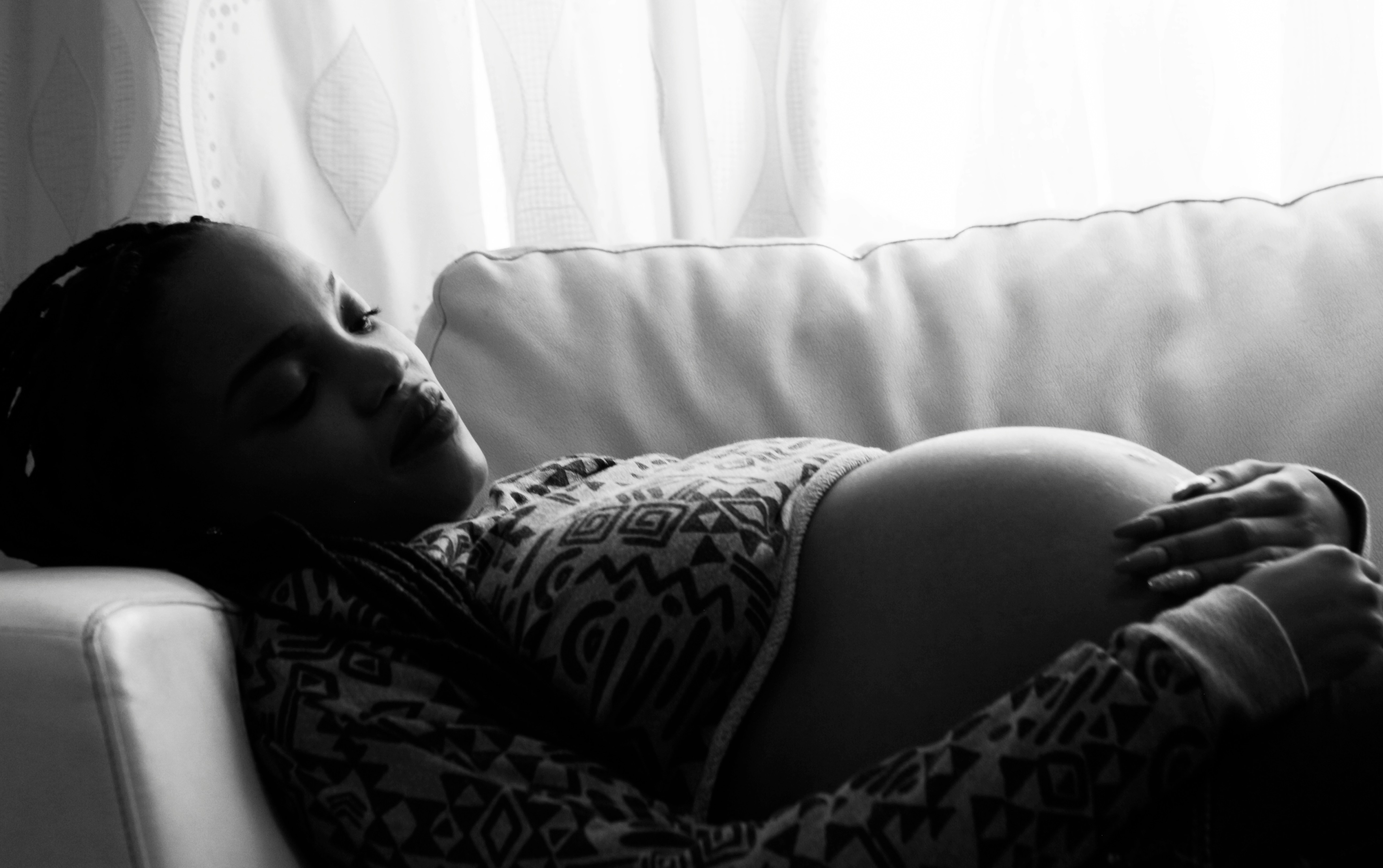It is not necessary to have a master's degree in nutrition to understand that what you consume during pregnancy can have an impact on your baby. However, with a plethora of "dos" and "don'ts" regarding particular foods to avoid while pregnant, knowing what to eat and drink can sometimes be just as stressful as the pregnancy itself.
With such a lot of misinformation and forever changing science and rules, even the specialists can't settle on which foods to cut, limit or eat says nutritionist Clarissa Lenherr.
She explains, "When a woman is pregnant, her immune system changes and is sometimes less able to fight off harmful bacteria, which can put her and the baby at an increased risk to foodborne illnesses."
What should you eat then? And what foods should you avoid when pregnant?
Uncooked meats
Meat is a good source of protein, vitamins and zinc, so as long as meat is cooked well, you don't need to cut it from your diet. Keep away from raw or undercooked meats to decrease the risk of Salmonella or Toxoplasmosis. According to Lenherr, "you can safely eat chicken, pork, and beef if it is very well done and there is no trace of blood or pink flesh." Meat isn't a food to avoid when you are pregnant. But avoid all uncooked or undercooked meats, cured meats, game, liver and make sure when cooking sausages or burgers that you check that they have been cooked through."
Raw Fish
Fish is packed full of protein, essential vitamins and minerals and omega-3 fatty acids, which is beneficial for both mum and baby. Yet, that doesn't make fish an all-you-can-eat food when you're pregnant.
“With fish – eat fish and shellfish that are cooked well and aim for one to two portions of oily fish per week, such as salmon and trout. Avoid eating raw fish,” advises Lenherr.
“Also avoid fish that may contain high levels of mercury – such as swordfish, shark and king mackerel – and keep tuna to one portion per week, due to mercury content.”
Avoid Alcohol Completely
The Chief Medical Officers for the UK as of now advise women not to drink any alcohol at anytime during pregnancy, to keep risks to the baby to a minimum. A 2020 study titled "Evidence of detrimental effects of prenatal alcohol exposure on offspring birthweight and neurodevelopment" revealed that babies who had been exposed to alcohol had a higher risk of having lower brain function.
Folate abnormalities like foetal alcohol syndrome (FAS) and miscarriage have also been linked to excessive alcohol consumption. In the event that you decide to drink alcohol, have no more than one or two units of alcohol once or twice a week – one unit is equivalent to half a pint of lager or a small glass of wine.
Stick to one cup of coffee
Consumption of coffee and other sources of caffeine has been linked by decades of research to an increased risk of miscarriage and low birth weight babies. One cup of filter coffee is 140mg of caffeine, so try to stick to one cup - or change to decaf. According to Lenherr, "taking in too much caffeine has been linked to an increased risk of miscarriage. When pregnant, the maximum amount of caffeine that should be consumed is 200 milligrams per day, which is equivalent to two cups of instant coffee or three cups of tea. Remember caffeine is also found in green tea, fizzy beverages like cola and, surprisingly, dark chocolate! Veer on the side of caution and try to stick away from caffeine as much as possible.”

Choose your cheese carefully
Soft goat's cheese, brie, Camembert, and blue-veined cheeses are out. Cheddar, feta, Edam, goats' cheese, Parmesan can remain.
“While it is safe to consume hard cheeses like cheddar and parmesan during pregnancy, you should steer clear of mold-producing cheese, blue cheeses like gorgonzola, and soft cheeses like brie. Additionally avoid consuming any unpasteurised food, like milk," says Lenherr.
Check your eggs are stamped
“Women were told to avoid any undercooked eggs due to the risk of salmonella, but guidance has now changed in the UK in that if the eggs are Red Lion logo stamped then they are safe raw or cooked,” says Lenherr.
“Pregnant women should still avoid raw or partially cooked eggs that are not Red Lion stamped, of course – so if you’re eating out or ordering in, be cautious and ask or avoid. Additionally, try to avoid any foods that contain undercooked eggs such as mayonnaise, soufflés and mousse if not from Red Lion stamped eggs.”
When to worry
So you’ve accidentally eaten something on the “do not eat” list? Or before you knew you were pregnant you may have had one too many negorinis?
“If you have had a small amount then try not to worry, as the stress can make you feel worse. If you are concerned, chat to your midwife or GP,” says Lenherr.
IF YOU HAVE ANY CONCERNS ABOUT YOUR PREGNANCY IN RELATION TO FOOD AND DRINKS TO AVOID AND LIMIT, PLEASE ENSURE YOU GET ADVICE FROM YOUR DOCTOR OR MIDWIFE.
All information we provide is for educational and awareness purposes only. Any concerns should be discussed with your GP, Midwife or Healthcare Professional.
If you’re trying to conceive (TTC), you probably know that there are certain foods and nutrients that become especially important once you’re pregnant. But nutrition plays a vital role even when trying to conceive, much like laying a strong foundation before constructing a house.
Certain nutrients create that foundation by supporting egg and sperm health (yes, nutrition matters for both partners), hormone balance and creating a hospitable environment for a fertilized egg to implant. In fact, studies show that certain nutrients can help increase fertility and improve success rates for both natural conception and fertility treatments.
In other words, nutrition is a key player in the TTC journey, but getting the right nutrients in the right quantities can be tricky. That’s where supplements come in. Just as you’d take a multivitamin to fill in nutritional gaps for optimal health, fertility supplements can give you that extra nutrient boost.
Choosing supplements for your fertility journey
When choosing a supplement to support your fertility journey, look for science-backed, high-quality ingredients. Our editors are careful to select and partner with brands that use ingredients that have been clinically studied to support fertility. Eu Natural® (pronounced you) covers all those bases and more. We love knowing that Eu Natural® products contain zero artificial additives, binders, or fillers and are lab-tested to ensure purity and potency.

When choosing a supplement to support your fertility journey, look for science-backed, high-quality ingredients. Our editors are careful to select and partner with brands that use ingredients that have been clinically studied to support fertility. Eu Natural® (pronounced you) covers all those bases and more. We love knowing that Eu Natural® products contain zero artificial additives, binders, or fillers and are lab-tested to ensure purity and potency.





.jpg)

.png)
.jpg)


%20copy.jpg)

